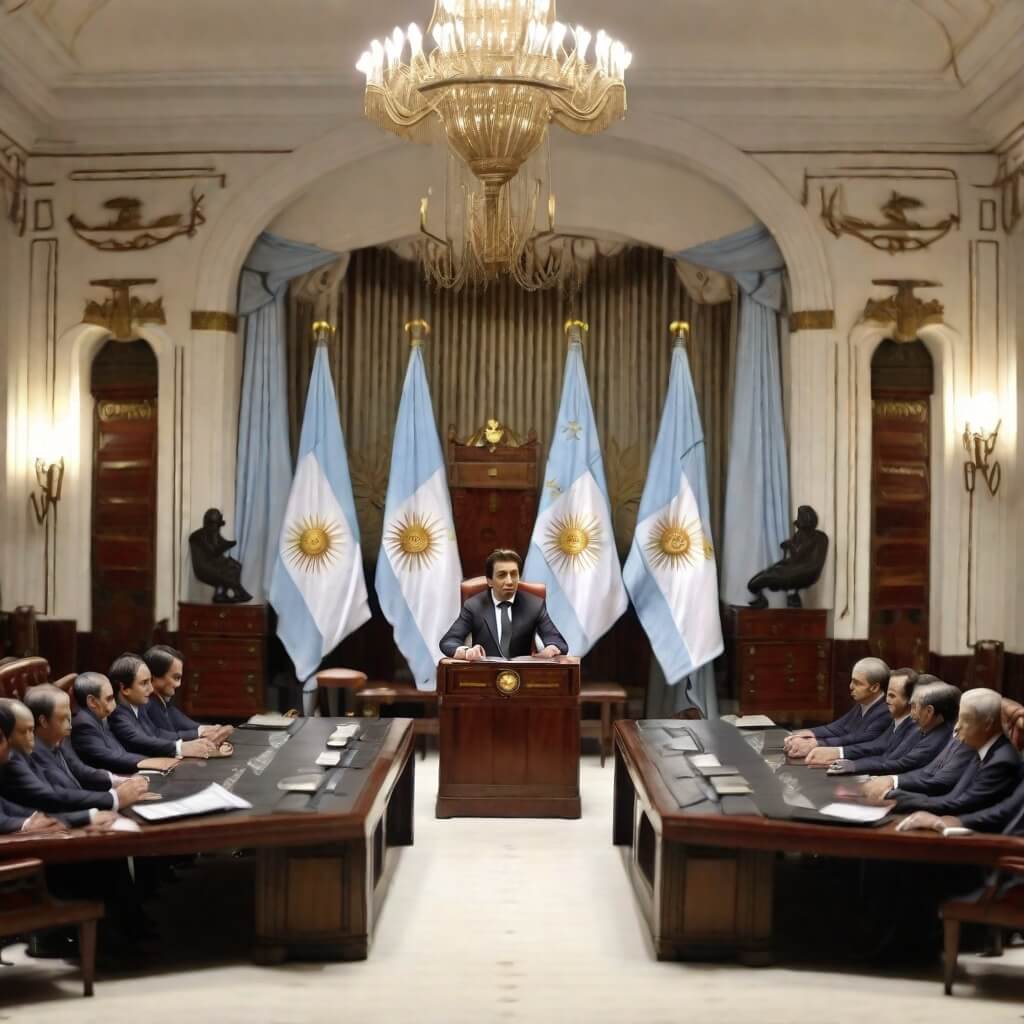Javier Milei’s victory in Argentina’s presidential election marks a significant political shift, but it also heralds a time of immense challenges for the newly elected leader.
Known for his “anarcho-capitalist” stance and radical economic proposals, Milei faces a host of obstacles in implementing his vision for Argentina, a country currently grappling with severe economic issues.
His proposed policies, including government downsizing and dollarization of the economy, are set to be tested against Argentina’s complex political and economic landscape.
Navigating a Troubled Economy and a Divided Congress
Milei inherits a country in turmoil, with an annual inflation rate soaring at 143% and a public finance system in disrepair. The task of stabilizing the Argentine economy and curtailing inflation will be daunting, requiring astute economic strategies and bold reforms.
However, Milei’s lack of executive experience and limited support in Congress pose significant hurdles. His party, La Libertad Avanza, holds a meager 39 seats in the 257-member lower house and only eight in the 72-seat Senate.
This weak position in Congress necessitates strategic alliances and compromises, particularly with former president Mauricio Macri’s coalition and potentially with the Peronists, to pass legislation effectively.
The radical nature of some of Milei’s proposals, such as abolishing the central bank or replacing the peso with the US dollar, is likely to encounter stiff resistance, not only in Congress but also among the Argentine populace.
Moreover, Milei’s campaign promises, including maintaining public healthcare and education, gun control, and avoiding the privatization of football, indicate a need for moderation and practicality in his approach to governance.
Formidable Tasks Ahead: Economic Reform and Political Stability
Milei’s presidency will be a test of balancing bold economic reforms with political pragmatism.
Achieving a stable economy requires tackling the soaring inflation and addressing issues like price controls, subsidies, and the renegotiation of Argentina’s significant debt with the IMF.
The transition period until Milei’s inauguration on December 10 is critical, with outgoing economy minister Sergio Massa likely to step down, leaving a vacuum in managing the challenging economic scenario.
Investors and the Argentine public will be closely watching Milei’s moves, especially his approach to public sector job cuts, energy subsidies, and welfare program reductions.
These measures, necessary for fiscal balance, may prove unpopular but are crucial for economic recovery. Milei’s promise to “end inflation forever” sets high expectations, but the immediate concern remains averting hyperinflation and ensuring a smooth transition of power.
Javier Milei’s presidency marks a bold new chapter in Argentine politics, one filled with the promise of change but also fraught with significant challenges.
His ability to maneuver through a hostile Congress, implement his economic policies, and maintain political stability will be crucial in determining the success of his presidency.
As Argentina ventures into this new era under Milei’s leadership, the nation watches with a blend of hope and apprehension, anticipating the impact of his unconventional policies on their future.





